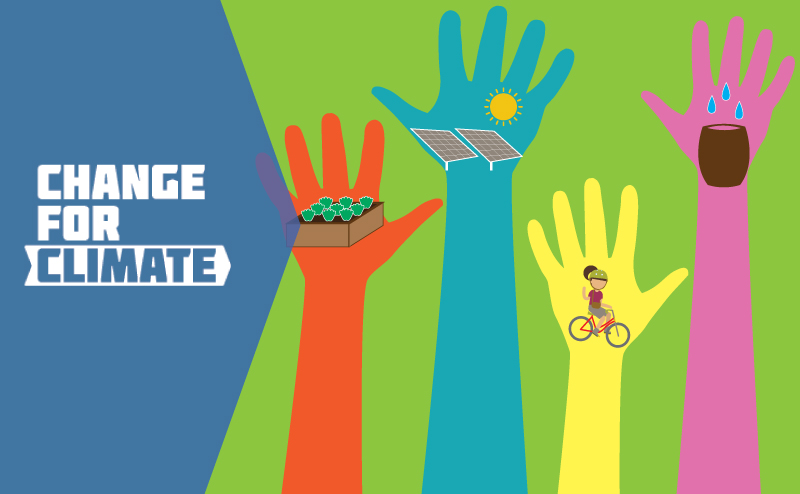JUDY WOODRUFF: Finally, a "NewsHour" Shares. Many coastal communities in the U.S. are feeling the effects of climate change, including Norfolk, Virginia.
From the "NewsHour"'s Student Reporting Labs Ariyail Banks and a team from Grandby High School shows us one program helping to raise awareness.
ANGELA HARRIS, Southeast CARE Coalition: What is the name of that program that we do when we go into the community and we put the little things.
What is the name of the program?
STUDENTS: Medallion Program.
ARIYAIL BANKS: These students are part of the Southeast CARE Coalition, an environmental conservation organization in Southeast Newport News, Virginia.
Annual flood damages from coastal storms are expected to triple by 2060, according to a study by the Virginia coastal policy center.
The Southeast CARE Coalition is teaching local schoolchildren adaptation and survival strategies to live with the rising water.
ANGELA HARRIS: We owe the children.
ARIYAIL BANKS: Angela Harris is a community activist and one of the founders of the coalition.
ANGELA HARRIS: It's our responsibility to get more involved and more engaged.
When you know the water coming, what you going to do?
ARIYAIL BANKS: Harris has worked to make community members aware of the threats that sea level rise and climate change pose.
She pioneered a program where youth work with city sanitation officials to clear drains clogged with litter and debris.
They mark newly cleaned drained with medallions.
ANGELA HARRIS: This area, 28th Street, used to flood.

So you come off that interstate down Buxton Avenue, before you get to, you're in the water.
But one of the things that we found, a lot of the drains were just clogged up to the top.
ARIYAIL BANKS: The program teaches youth the effects of climate change and how to protect their community.
Dr. Erica Holloman, a Marine Scientist, is the former coordinator for the coalition.
DR.ERICA HOLLOMAN, Marine Scientist: Our Medallion program to learn about stormwater management, why it's important, and how to participate.
ARIYAIL BANKS: Sea level in the Tidewater region has risen 80 percent higher than the global average in the last 140 years, according to the World Resources Institute.
RAY TOLL, Old Dominion University: Part of our problem is that the land is sinking, as well as the water is rising, so it complicates and accentuates that rise.
ARIYAIL BANKS: Ray Toll is the director of coastal resilience research at Old Dominion University.
He studies the different effects of climate change on the region.
RAY TOLL: I look at this as a glass-half-full problem, in that there are opportunities here to come up with new solutions that is an integrated regional approach.
ARIYAIL BANKS: While the Virginia coast prepares for the future, some communities most at risk from flooding hope to be included at the table when discussing solutions.
DR.ERICA HOLLOMAN: This Hampton Roads region is really second with regards to feeling the impacts of climate change after New Orleans.
Unlike Katrina, the Hampton Roads region has an opportunity to be proactive, instead of reactive.
The largest challenge hasn't been on the side of getting community members involved, because we're living it.
We understand it. We know it.
It's about ensuring that our voices are heard, ensuring that our voices are valued in a way that truly implements equitable policies that help those that are most impacted.
ARIYAIL BANKS: For the "PBS NewsHour" Student Reporting Labs, I'm Ariyail Banks in Norfolk, Virginia.












